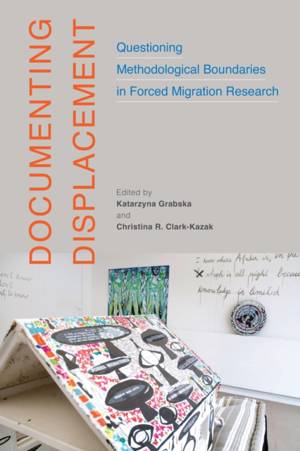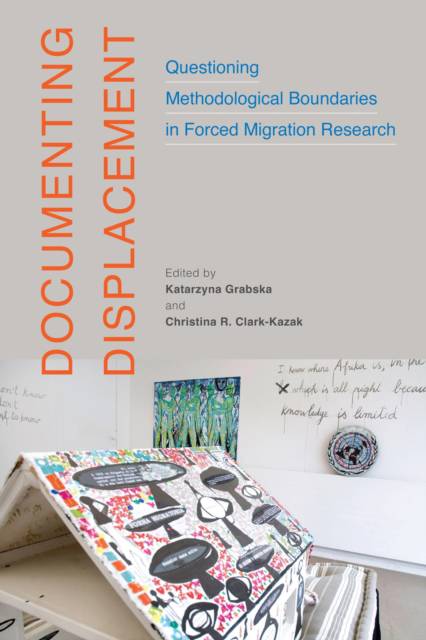
- Afhalen na 1 uur in een winkel met voorraad
- Gratis thuislevering in België vanaf € 30
- Ruim aanbod met 7 miljoen producten
- Afhalen na 1 uur in een winkel met voorraad
- Gratis thuislevering in België vanaf € 30
- Ruim aanbod met 7 miljoen producten
Zoeken
Documenting Displacement
Questioning Methodological Boundaries in Forced Migration Research Volume 7
€ 199,95
+ 399 punten
Omschrijving
Legal precarity, mobility, and the criminalization of migrants complicate the study of forced migration and exile. Traditional methodologies can obscure both the agency of displaced people and hierarchies of power between researchers and research participants. This project critically assesses the ways in which knowledge is co-created and reproduced through narratives in spaces of displacement, advancing a creative, collective, and interdisciplinary approach.Documenting Displacement explores the ethics and methods of research in diverse forced migration contexts and proposes new ways of thinking about and documenting displacement. Each chapter delves into specific ethical and methodological challEnglishes, with particular attention to unequal power relations in the co-creation of knowledge, questions about representation and ownership, and the adaptation of methodological approaches to contexts of mobility. Contributors reflect honestly on what has worked and what has not, providing useful points of discussion for future research by both established and emerging researchers.Innovative in its use of arts-based methods, Documenting Displacement invites researchers to explore new avenues guided not only by the procedural ethics imposed by academic institutions, but also by a relational ethics that more fully considers the position of the researcher and the interests of those who have been displaced.
Specificaties
Betrokkenen
- Uitgeverij:
Inhoud
- Aantal bladzijden:
- 424
- Taal:
- Engels
- Reeks:
Eigenschappen
- Productcode (EAN):
- 9780228008323
- Verschijningsdatum:
- 15/02/2022
- Uitvoering:
- Hardcover
- Formaat:
- Genaaid
- Afmetingen:
- 152 mm x 229 mm
- Gewicht:
- 739 g

Alleen bij Standaard Boekhandel
+ 399 punten op je klantenkaart van Standaard Boekhandel
Beoordelingen
We publiceren alleen reviews die voldoen aan de voorwaarden voor reviews. Bekijk onze voorwaarden voor reviews.










